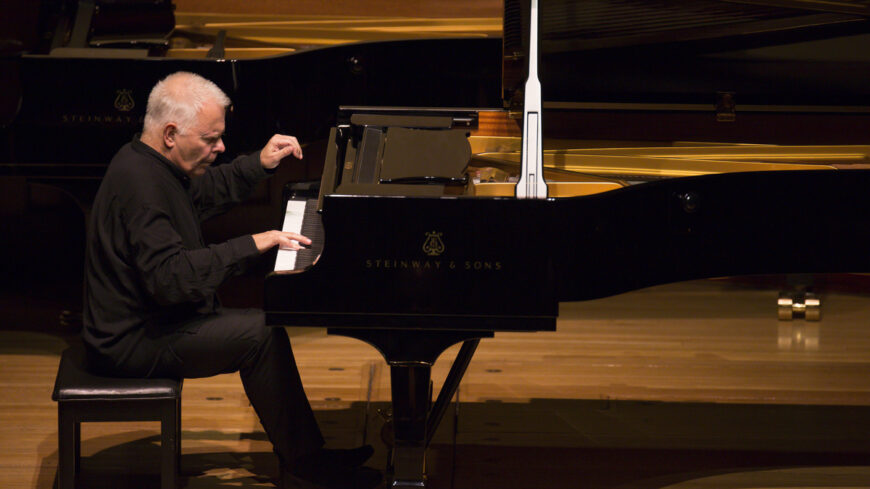
Ryedale Festival: Stephen Kovacevich, Duncombe Park, July 28
THIS was the second of two remarkable, and remarkably different, piano recitals during Ryedale’s second week.
Stephen Kovacevich will celebrate his 82nd birthday in October. He has been a fixture on the musical scene for 60 years and has lived in Hampstead for many years, so he is practically one of us.
Hearing him in solo recital was a rare opportunity, since these days you are more likely to hear him in chamber music or duetting with his long-time friend Martha Argerich (now there’s a thought for a future festival).
His programme opened with Berg’s single-movement sonata, continued with Beethoven’s penultimate sonata, Op 110 in A flat (not the advertised Op 109) and ended with Schubert’s final sonata, D.960 in B flat.
The piano sonata was far from being Berg’s earliest work – he finished it in 1909 at the age of 24 – but he called Op 1. In it he kindles the dying embers of romanticism, showing himself wrestling with the (for him) magnetic tug of atonality.
Kovacevich presented the theme and its offshoots with a clarity it hardly deserved, so that it was possible to pick out some logic in Berg’s machinations. Whether the rubato he employed was supposed to be part of the original deal is open to question but it certainly helped this listener. The work would not have been many people’s choice of opener, on either side of the platform, but it worked here.
Nevertheless, moving back to the purer tonality of Beethoven came as something of a relief. Kovacevich’s last-minute change of sonata – excused by a recent bout of Covid – was something of a mystery, because his opening movement was wayward. Marked ‘con amabilità’ (lovingly), it was certainly caressed, but it also rambled and some of the runs were too fast for their own clarity.
Kovacevich came back into better focus with the scherzo, which was percussive to the point of anger in its C major sections. The trio was hardly less forceful and he coped admirably with its abrupt leaps.
The finale is a tricky mixture – and sounded it. Its slow opening and elegiac first arioso led smoothly into the first fugue, which was impressively delivered, with special clarity in the left hand. The second arioso was less comfortable and led into an aggressive second fugue, untidily banged out in places, even though it ended convincingly enough. This was not so much faltering technique as the idiosyncrasies that come with age, undeniably reminiscent of Horowitz in his later years.
We looked for recompense in Schubert after the interval. It came, gradually at first, reaching full flowering in a finale that was by far his best movement of the evening. The sonata, for all its use of the major key, is clouded with the darkness of Schubert’s knowledge that he had not long to live (he died two months later, at the age of 31).
Its otherwise soothing melodies also conveyed doubt here, in the dark, low trill near the start, for example. There was a well-worked acceleration when the main theme was repeated, but the first movement ended in a beautiful calm.
The dotted rhythms of the Andante were almost Baroque, but its answering theme was too hasty, lacking nobility, even if the later key-changes were negotiated persuasively. The Scherzo was a little rough at the edges, but it was a warm-up for a finale whose drama dazzled. This was the Kovacevich we had been waiting for and it did not disappoint in any way.
Review by Martin Dreyer
